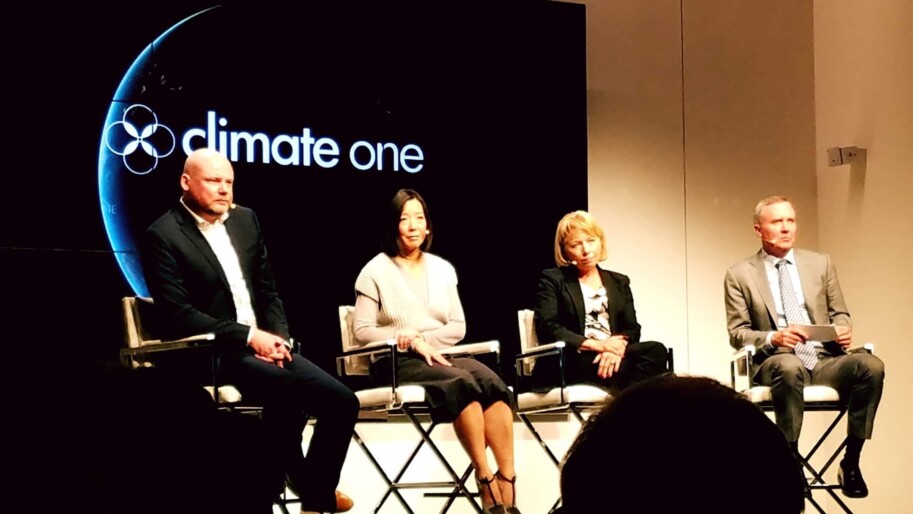by Buddy Burch, The Climate Center
On February 13th, Karen Barnes, Jock Gilchrist, and I of The Climate Center attended a “Climate One,” presentation hosted at the Commonwealth Club in San Francisco. Climate One “offers a forum for candid discussion among climate scientists, policymakers, activists, and concerned citizens.”
The topic was “Power Shift: The End of Gasoline Cars?” Featured guests were high-powered executives from the utilities and automotive industries: Caroline Choi, Senior Vice President of Regulatory Affairs at Edison International; Andreas Klugescheid, Head of Steering Government and External Affairs, Sustainability Communications, BMW Group; and Catherine Reheis-Boyd, President of the Western States Petroleum Association. Because The Climate Center has taken a great interest in recent legislation by Assemblymember Phil Ting to transition California to a transportation system powered by Zero-Emissions Vehicles (the Clean Cars 2040 Act), we wanted to know more about the public stance of each of these industry giants. The main points of conversation included the inevitability of electric vehicle takeover and the pace at which this takeover needs to occur.
To varying degrees, the speakers who each represent industries with some vested interest in oil, agreed that EVs will someday overtake internal combustion engine (ICE) vehicles. Their predictions for EV adoption were conservative, and contrast sharply with other models predicting a takeover in the near future. On a positive note, they used the horse-drawn carriage as an analogy for a transportation technology that became obsolete once consumers realized the superiority of gas-powered cars. They also noted that policy makers send strong signals to businesses. In the wake of countries, cities, and now possibly California, announcing future bans on ICE vehicles, automotive manufacturers and utility companies are beginning to change their product offerings and business models.
The speakers stated that a “mathematical challenge” exists in getting EVs on the road fast enough to meet government requirements for emission reduction goals. They emphasized the cost of EVs for consumers, especially since the barrel price of gasoline has dropped (though they do not always pass these savings along to consumers). Mrs. Reheis-Boyd also quoted statistics from an Energy Administration report, which claims that 80 percent of oil needs will still be met by gas, coal, and oil in 2040, meaning that these fuel sources will likely remain more affordable to consumers. Ms. Choi acknowledged that statistic, but claimed that government policies and regulations and consumer education about EVs could effectively change that trajectory.
Climate One has hosted many inspiring conversations about energy, climate change, and transportation. This episode reminded us that many industries with a vested interest in the status quo will continue to undermine clean energy. For example, Mrs. Reheis-Boyd refused to fully acknowledge the truth of the statement, “Burning fossil fuels causes climate disruption.” On the bright side, each guest acknowledged EVs as a growing force. It’s up to groups like The Climate Center and our supporters to advocate for greenhouse gas reductions.
To hear this episode of the Climate One Podcast, visit https://climateone.org/audio/power-shift-end-gasoline-cars
